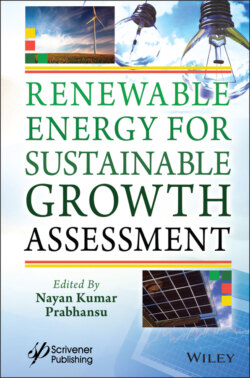Читать книгу Renewable Energy for Sustainable Growth Assessment - Группа авторов - Страница 47
Abstract
ОглавлениеRenewable energy (RE) technologies in India, i.e., large hydropower, small hydropower, onshore wind power, solar photovoltaic (PV), and bioenergy are assessed and ranked based on selected sustainability indicators. Sustainability assessment of RE technologies at a national scale involves a range of conflicting indicators. Multicriteria decision-making (MCDM) methods are the best tool that can address these conflicts. However, the present assessment used a qualitative scale for some indicators. These qualitative data are associated with uncertainties and a fuzzy MCDM approach is the best tool to address these associated uncertainties in data. Thus, the study ranks the RE technologies in context to India under associated uncertainties using fuzzy-TOPSIS, a well-known MCDM method. Further, it has been reviewed that indicator values vary widely for each RE technology. Accounting for these uncertainties in input data the TOPSIS is run using Monte Carlo simulation (MCS) to obtain probabilistic ranking. To understand the impact of these uncertainties both the fuzzy-TOPSIS and probabilistic ranking are compared with that obtained from the TOPSIS method and are found to be uncertain. Thus, the study concludes that for better decision-making and energy planning at the national level the uncertainties in input data must be addressed while assessing the sustainability.
Keywords: Renewable energy, risks, sustainability assessment, sustainability indicators, uncertainties
